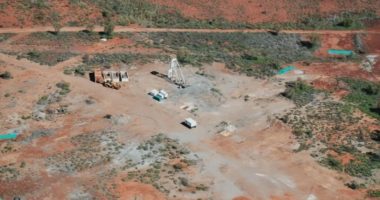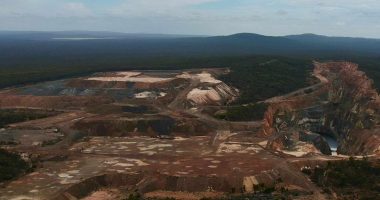Sonia Madigan:
Infinity Lithium (ASX:INF) has updated the scoping study for its San Jose project in Spain, a lithium project designed around Europe’s second-largest JORC-compliant hard rock resource.
Infinity’s Managing Director and CEO Ryan Parkin is here to discuss progress in developing a sustainable battery-grade lithium supply.
Ryan, welcome.
Ryan Parkin:
Good morning, Sonia.
Sonia Madigan:
So what’s changed through revising the project’s scoping study?
Ryan Parkin:
Well, we’re pleased to announce the updated study, which has highlighted the potential for a significant increase in production, and this has been achieved through process efficiencies.
Ultimately, we’ll be mining the same volume of rock and ultimately able to produce a far greater volume of battery-grade materials. We’ll be using one of Europe’s largest lithium resources as a feedstock onsite to produce battery-grade lithium hydroxide.
We will see close to 48 million tonnes over the life of the project process or two million tonnes ROM per annum at full production to produce 33,000 tonnes of battery-grade lithium hydroxide.
So that’s 70 per cent more than prior studies. We’ve managed to achieve this through process improvements as driven through our technical team and this has really resulted from process unit simplification.
So we’ve eliminated the beneficiation and calcitonin unit and this also affects our energy matrix. So the result being run a mine to product has seen 90 per cent recoveries and that is really driving those volumes.
At the back end of our process, it’s a traditional back end. We’re going to see lithium sulphate in solution undertake neutralisation, evaporation crystallization to produce a standard end product.
So very low risk at that back end despite those developments. In terms of the project economics, we see a very low C1 cost at under $5800 US a tonne. That drives high operating margins and ultimately with the additional volumes can support a large-scale lithium chemical conversion project in Europe.
Our pretax NPV is close to 4.2 billion US dollars, and a post-tax NPV is close to 2.9 billion USD based on 100 per cent project ownership. We currently own 75 per cent of the project and can move to 100 per cent at any time prior to the final investment decision. So really it’s all of these attributes, plus a robust CO2 profile that has put us on the map in Europe.
We are delivering a financially viable project, a project that is in line with the social requirements of the locality of CASARES and environmental credentials that are entirely relevant for Europe and their move to a low-carbon value chain.
Sonia Madigan:
So for investors, does that mean the project’s shaping up better than expected?
Ryan Parkin:
I mean, the project economics are exceptional, but it’s really the strategic value of the project.
So what we have large volumes of battery-grade lithium chemicals that are urgently needed in Europe.
Sonia Madigan:
So what does all of this mean for your next steps?
Ryan Parkin:
Well, the next steps after we have delivered this technical study is will be using that information for our mining license application and environmental approvals. We’ll also be working in unison on a premier application.
And a premier application is really around classifying the project as a project of regional and general interest. Under that classification, we get an accelerated permitting pathway.
So this is about submitting our permits and then facilitating an accelerated result.
Sonia Madigan:
Now this project is in the heart of Europe’s auto manufacturing territory. Have you been building relationships with potential off-take partners?
Ryan Parkin:
Well, yeah. I mean, Europe is really focused on their automotive industry. It’s a huge automotive industry and there’s global competition to build these value chains through the US and through China. Obviously, Spain sits as the second largest contributor to the European value chain in the automotive industry, some 10 per cent of their GDP and 18 per cent of their export. So for our large-scale project with large volumes and product is any number of potential customers are now it’s about aligning itself to the right strategic partners to drive this forward.
Sonia Madigan:
Well, to summarise then, Ryan, what would be your key message today to investors in relation to Infinity Lithium and the San Jose Project?
Ryan Parkin:
Well, the San Jose product is critical for Europe as they move forward and they secure vast volumes of your great lithium chemicals. The product can come into production by 2028 and by 2030, Europe will need more than 500,000 tonnes of battery-grade lithium chemicals currently producing none.
So it’s very clear within Europe, it’s critical for them to not only develop their internal value chain but seek strong partnerships. And Infinity can play a strong part of that story.






